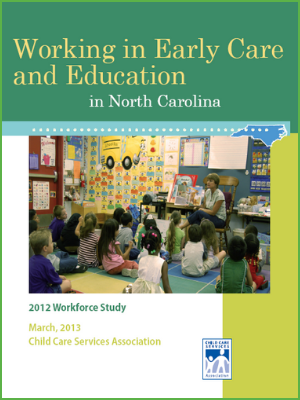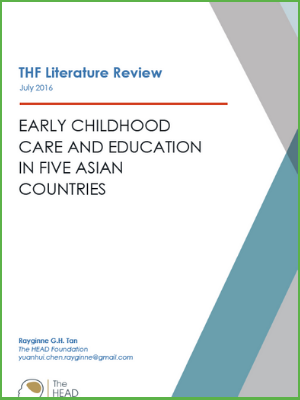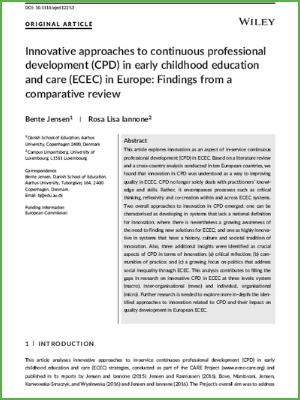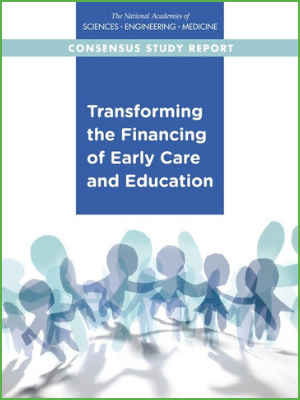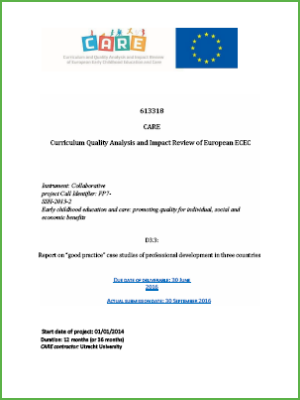Recommendations for common policy across the EU regarding professional development as an element of quality in ECEC and child wellbeing for all
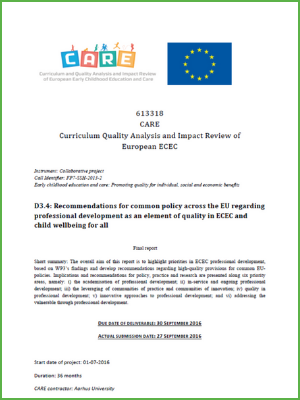
This report is the final report of the CARE project (Curriculum Quality Analysis and Impact Review of European ECEC). It aims to highlight priorities in ECEC professional development and develop recommendations regarding high-quality provisions for common EU policies. Six policy priorities are identified in throughout the report:
- in-service and ongoing professional development;
- the leveraging of communities of practice (CoP) and communities of innovation (CoI);
- quality in professional development;
- innovative approaches to professional development; and
- addressing the vulnerable through professional development.
As ECEC's policies and systems evolve, so does the work and expectations of those working in the field. This emphasizes the importance of enhanced, continuous professional development.
You may also like Report on “good practice” case studies of professional development in three countries from the CARE project.
ecec-care.org


